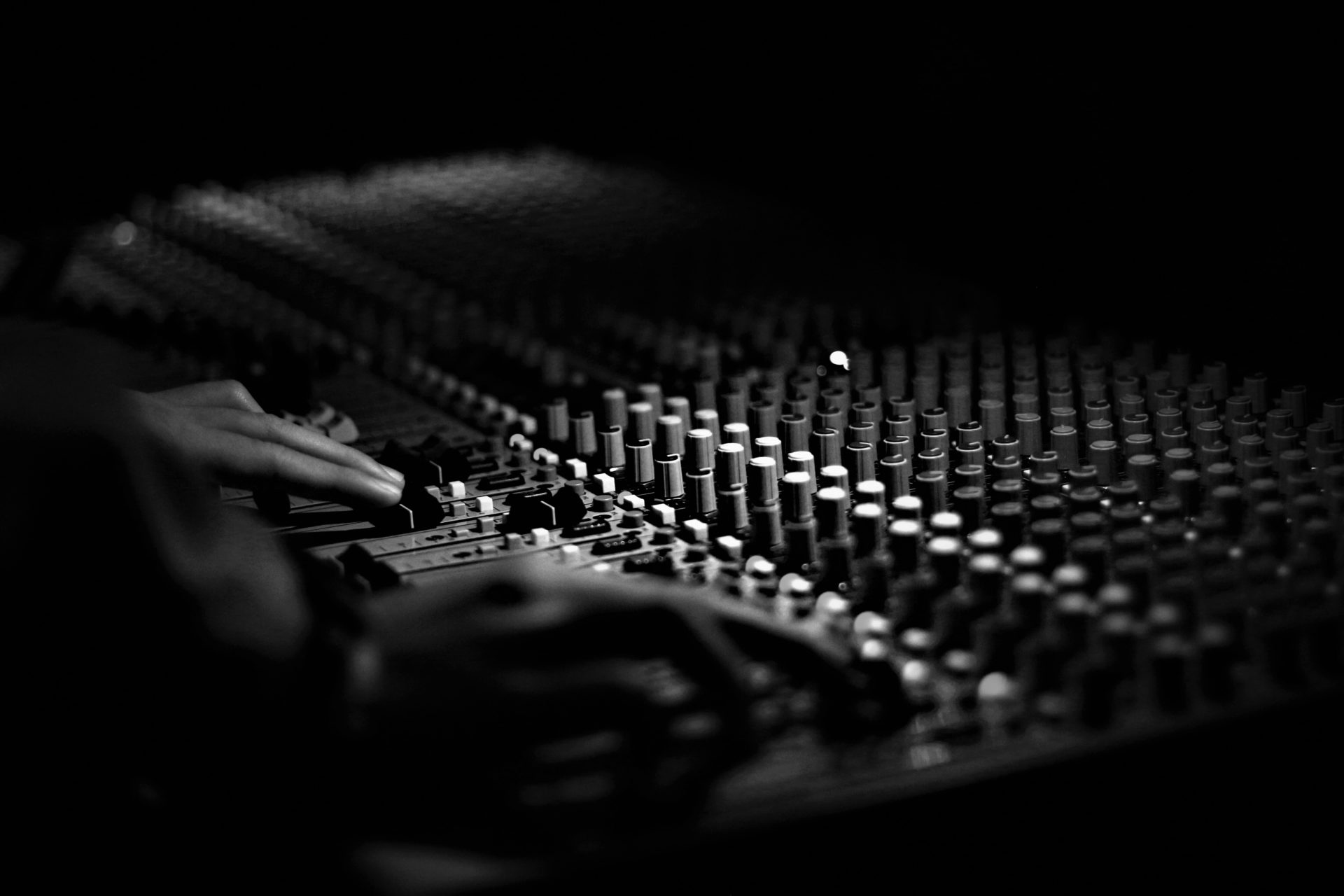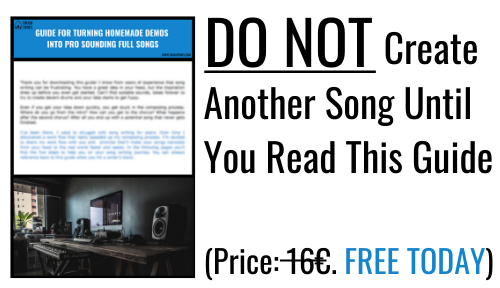Mastering Your Own Songs vs Hiring a Professional
Do you need to get your songs mastered by a professional mastering engineer or can you do it by yourself? Do your songs even need to be mastered? Can you use online services or the “mastering robots” to master your songs? Can I master my song during the mixing process? There’s a lot of confusion surrounding these valid questions. In this post you’ll find answers to these questions.
Do your songs need mastering? It depends. Are you making a full album / EP or one single at a time? When mastering a collection of songs such as album or EP, mastering might mean something different compared to making a single.
Mastering a collection of songs is kind of a must thing, because you have to adjust the level differences and tonal balances so there’s consistency across the songs. One song might be quieter than others, another one might be too different sounding compared to others. While you’ve mixed them yourself, there might be indifferences between them because you’ve mixed them separately. That means that you render / bounce down the individual songs and import them into a new session and do the mastering there. So when making an album or EP, you cannot master the songs while mixing.
When making and releasing one song at a time, things go a little differently. Let’s say you’ve recorded and mixed your song. You want to release it, but you’re not entirely sure if you should get it mastered or do something else to it. The thing is, that what you’re probably looking for, is volume. Your song is not loud enough. So what you want to do is to lift the volume to the commercial level, so that a song can compete with other pro mixes out there. It doesn’t have to be insanely loud, but louder. Same goes when mastering an album or an EP.

Now, I know there’s the loudness war going on in the mastering world. Even grandmas at grocery stores are whining how Metallica’s new album was ruined because of too much limiting. I’m not saying you have to get your song as loud as it can be. You can preserve some dynamics if that’s something that you’re looking for, but the volume of the mix isn’t loud enough without some limiting.
The mix is at a good level with plenty of headroom when you’re mixing. That’s how it’s supposed to be, but when you want to release your song, you have to get the volume up. If your mix is good sounding and balanced, you shouldn’t have to do much else to it. Just get the volume up to the commercial level. In this case it’s totally fine to master the song in the mixing phase. Just put a limiter at the end of your mix bus (master fader) as a final plugin. There’s no need to bounce your song down to a file and insert it to a new session to do that.
There are other things that mastering engineers do in order to get your song to sound good and matching with the pro stuff. Things like EQing, additional compressing, stereo widening, saturation etc. Why don’t you make them in the mixing phase? If it’s your own music and you’re the one who’s mixing it, why wouldn’t you make it as good sounding as possible? Why leave things in the “mastering phase?” It’s your music so make it as good as you can. Don’t save things up for mastering. Check on multiple listening systems, on different rooms and reference to a pro mix. If your mix sounds good, just lift the volume up and you’re good to go.
It’s absolutely possible to master your songs. There’s no doubt about that. You don’t need to hire a service or a mastering engineer to do it for you. There are some upsides in hiring a mastering engineer or using a “robot” service though. The main benefit is that you get an extra pair of ears. An extra pair of ears that aren’t already familiar with your song and most of all aren’t listening to it in your room with your speakers. They might spot something you missed. They might not make the job that much better than you, but they might notice something that you didn’t. Is it necessary to hire a professional to do the mastering for you? No, not at all.

Whether you use an online based robot service or hire a mastering engineer, they both approach things the same way: they analyze your song and compare it to commercial songs from different genres. Then they use different tools to try to make your song match the commercial songs. Online services are becoming better and better, but can a machine ever be as good as an experienced human? That’s for you to decide.
If you don’t have the money or just want to do it on your own, do it. Don’t make it too complicated and don’t do more to your song just because you feel you have to, because of the “mastering phase”. Mastering shouldn’t be anything crazy anyway. If you have to do crazy big moves in mastering, that means you didn’t mix well enough. Head back to the mixing phase if that’s the case.
So, in essence (and a little simplified), mastering is: Analyzing a song, comparing it to a good sounding commercial mastered song, and then trying to match the two in terms of level and tonal balance. The point is not to get them to sound the same, but rather to close the gap between them. Of course if we’re talking about a collection of songs, the consistency between the individual songs have to be checked. This is because it is a unified pack of songs – an album or an ep. You want the songs to fit in with each other.
I hope this post clears some of the “fog” around mastering. It’s a lot more simple than you think. You don’t have to pull some crazy stunts in the mastering phase. If the song is mixed well, you’ve compared your mix to other pro mixes out there and checked that your mix holds in different environments – a simple limiter is all you need.
Before I forget, download my information packed PDF-guides for more awesome content:
5 Steps to Create Music Faster (..and avoid the writer’s block!)
